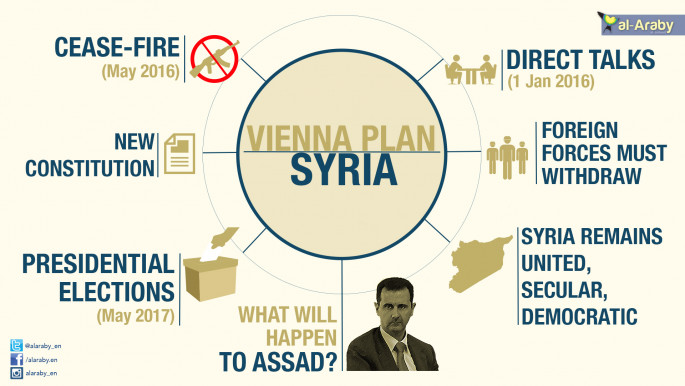Modest goals set to save Syria peace talks
"All the parties [...] have agreed on a basic framework which is a united, non-sectarian Syria that is able to choose its future through a transitional governing body," said US Secretary of State John Kerry.
"The challenge we face now is to transform these possibilites into the reality of an agreement."
The talks, which are co-chaired by Kerry and Russian Foreign Minister Sergei Lavrov, involve the 17 members of the Syria Support Group. Among those in attendance were the UK, France, the EU, Saudi Arabia, Turkey and Iran.
The members of the support group agreed to restore the Syrian ceasefire which was established in February and ensure the delivery of humanitarian aid, which has been severely hampered by continued hostilities.
Escalation of hostilities
In recent weeks, an intensification of violence in Syria's northern city of Aleppo has been cited by rebel groups as proof of the Syrian regime's lack of commitment to diplomacy, including a recent airstrike on the ancient city's citadel by President Bashar al-Assad's forces.
Rebel groups also claim that the regime have been blocking the delivery of humanitarian aid, a matter which the 17 countries meeting in Vienna will also hope to tackle.
This latest round of diplomacy comes after peace talks collapsed in Geneva last month when the official Syrian opposition withdrew from formal talks. The opposition said that their departure was due to the regime's continued bombardment of rebel-held towns and cities, and have more recently stated that they will not return until there is significant change on the ground.
Little optimism
Despite over hundreds of thousands of people having been killed in Syria's five-year conflict, many remain sceptical about the diplomatic effort.
While the rebels – backed by the US, Saudi Arabia and Turkey amongst others – insist that Assad must go, Damascus has forwarded the idea of a "unity government" in which opposition members would serve alongside members of the existing regime.
With an August deadline for the political transition set in the first Vienna talks last Autumn, Kerry's positive indications today do not reflect the skepticism held by many observers due to past failures.
If negotiations falter, Saudi Arabia has indicated that it may equip rebel groups with heavier weapons, while John Kerry has referred vaguely to a "plan b".
After Tuesday's discussions, Staffan de Mistura, the UN's special envoy to Syria, added that the parties "can't wait too long" to set a date for an agreement to be reached.
 |
|
| The aims of the Vienna talks set last Autumn [TNA] |


